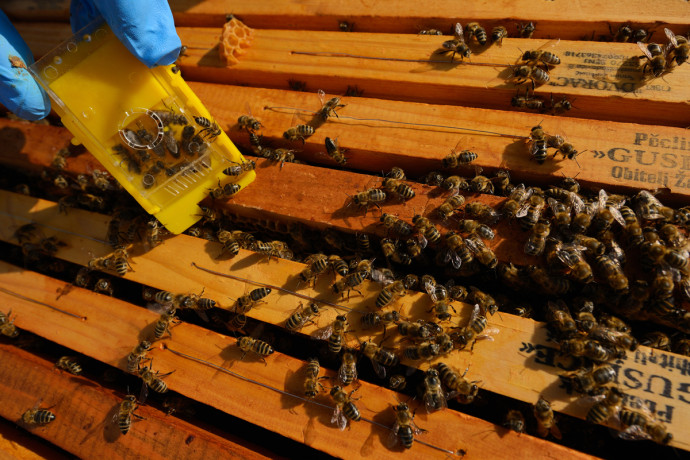The so-called “Neonicotinoid” insecticides are believed to seriously harm bees and other pollinating insects, and a first two-year EU suspension on three of these poisons began at the end of 2013. A terrifying new study has found that the exact same pesticides are behind the massive global die-off of bees and that they are now killing birds as well.

At least 95% of the Neonicotinoids applied to crops end up in the wider environment, killing the insects many birds rely on for food, particularly when raising their chicks. Also called ”Neonics”, these chemicals have been marketed as not harming birds in the amounts being used, but it turns out that they are now building up in the environment to levels that are poisonous not only for the birds and the bees, but potentially for mammals as well.
A paper in the very respected publication ”Nature” in July showed a strong correlation between the concentration of neonicotinoids and the decline of birds such as swallows, skylarks, yellowhammers, wagtails, starlings and whitethroats. Where the chemical was heavily used, bird populations fell by 3.5% per year; and where it was not used, the bird populations were stable. “At this rate, it doesn’t take long to engineer a world without bird song”, George Montbiot wrote recently. “The only sensible response to the little we know so far is a global moratorium pending further research, for all purposes except the control of human diseases”.
Neonicotinoids are destroying life across the natural world and only a global moratorium will stop it, many conservationists also believe. Ontario in Canada has, as the first region, banned the Neonicons and the EU ban might be prolonged, but the producer of the chemicals, the Bayer chemical company, have hired hundreds of lawyers worldwide to try to stop these rulings.
Rewilding Europe strongly supports a total ban of neonicotinoids in Europe, because these chemicals seem to quickly be making Europe into a less wild place, rather than the wilder place we are working for it to become. Very worrying signs are coming from for example the Po Valley in Italy, where swifts and swallows are disappearing at an alarming rate.
There are several initiatives to try to get these toxic pesticides off the market before they cause a new “Silent spring”. Check out for example this link: https://action.sumofus.org/a/bayer-birds-bees-recurring/2/2/?akid=6334.2364348.6MvvfG&ask=5&rd=1&sub=fwd&t=1
